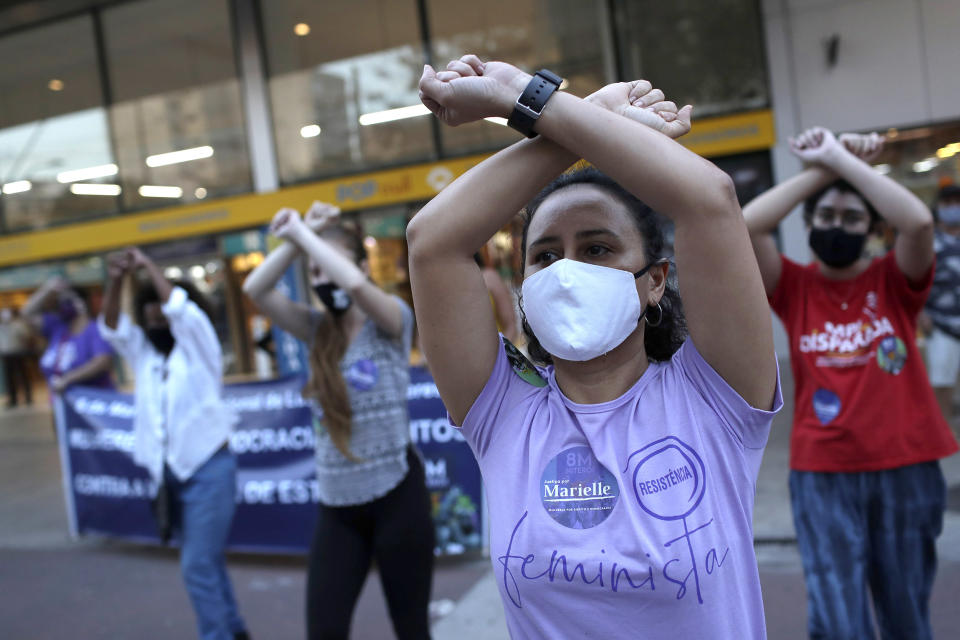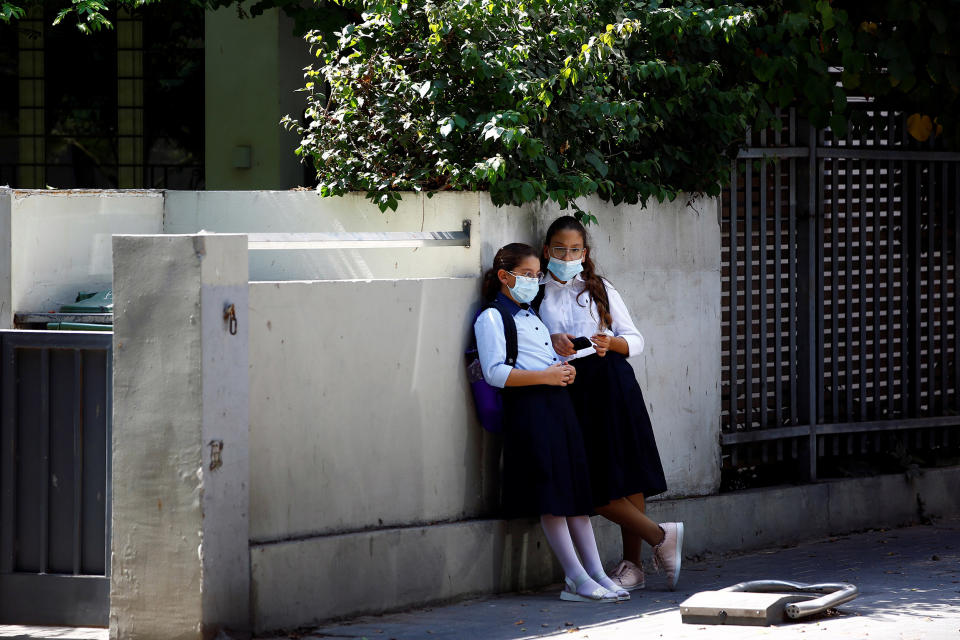'Shadow pandemic': Women, girls bear unequal share of Covid-19 burden, U.N. official warns
LONDON — As the coronavirus pandemic lurches toward its first year mark, one trend has become clear: the disproportionate burden it places on women and girls.
Along with the widespread suffering and hardship caused by the virus, Covid-19 risks setting women’s rights back by decades, Deputy Secretary-General of the United Nations Amina Mohammed told NBC News in an exclusive interview.
From child marriage to domestic abuse to online harassment, Mohammed said Friday, violence against women increased during the lockdowns as many victims were trapped at home with their abusers.

With more lockdowns looming as infection rates rise globally, this “shadow pandemic,” as Mohammed called it, is something that she said can’t be ignored.
The United Nations marked its 75th anniversary Monday as it kicked off the General Assembly — an annual meeting of world leaders — with no presidents or prime ministers physically present in New York. The pandemic has already claimed nearly a million lives around the world and crippled the global economy.
The U.N. has also called the effect of the pandemic on schooling “a global education emergency,” but Mohammed said it’s especially sensitive for some 743 million girls who have been left out of school because of it.
“My greatest fear is that this then becomes a cause, a root cause, of children, of young girls getting married when they shouldn’t have to get married,” she added.
Watch the interview on TODAY at 9:10 a.m.
Meanwhile, with nearly 1.5 billion schoolchildren affected by Covid-19 school closures, Mohammed said the pandemic has also forced millions of women around the world to choose between feeding their children and educating them at home.
“It shouldn't be a choice any woman, or any family, should ever have to make, not in 2020,” she said.

In a speech last week, Mohammed said that in developed countries, figures are already emerging showing that women are more likely to have lost their jobs and less likely to be hired for new ones since the pandemic.
She said the situation is even worse in the informal economy where jobs are neither legally regulated nor protected.
A report released by the U.N.’s gender equality agency earlier this month estimated that 740 million women work in the informal economy. It said their income fell by 60 percent during the first month of the pandemic.
Independent analysis backs up the U.N.'s and Mohammed’s stark warnings.
According to analysis by the consulting firm McKinsey & Company, women’s jobs are 1.8 times more vulnerable to the Covid-19 crisis than men’s jobs. The study released in July showed that women make up 39 percent of global employment but account for 54 percent of overall job losses.
Clare Wenham, assistant professor of global health policy at the London School of Economics, said that could be because industries in which many women work – restaurants, markets and tourism – have been decimated by the global lockdowns.
So-called micro factors, such as families deciding for the man to remain in the workforce and the woman to look after children, are also likely a cause.
Researchers like Sarah Hawkes, professor of global public health at University College London, say there is an urgent need for governments now faced with new waves of the pandemic to plan and implement interventions that are gender responsive, like ensuring that women and children who are at risk of violence in their homes are adequately provided for and protected.
The lack of attention being paid to gender equality and women’s rights in the pandemic reflects that these are often seen as a “luxury add-on” and not a core obligation for states to fulfil, Hawkes said.
But despite challenges posed by Covid-19, Mohammed remains optimistic about reaching the organization’s ambitious sustainable development goals, which include gender equality, by 2030.
“Don't fail before you get there,” she said. “Take the Covid-19 moment, get with the goals and run with it.”

